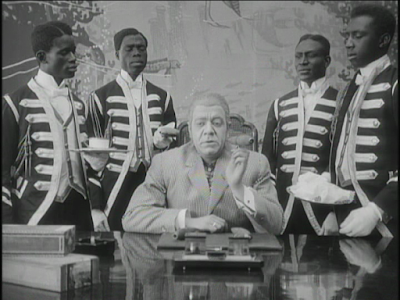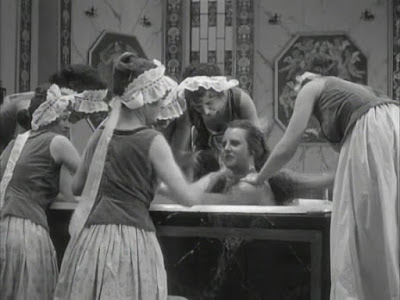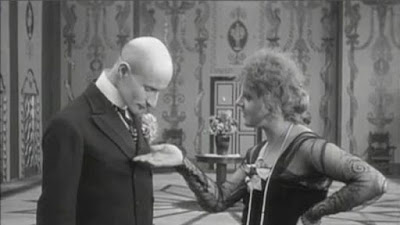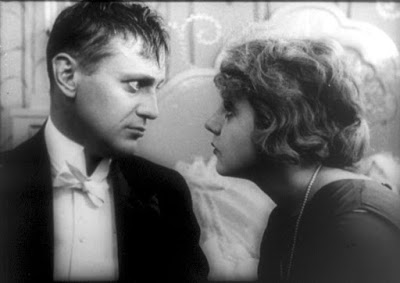The Oyster Princess
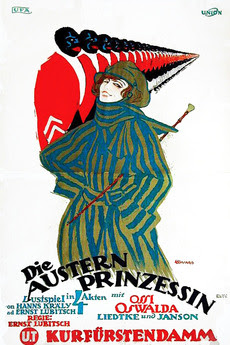
Director: Ernst Lubitsch
Year: 1919
Rating: 7.5
Country: Germany
World War I was over when Lubitsch directed this film. At the end of the
war he had been in a play that ended with the entire cast singing Germany
Wins! Germany Wins! The next day they had to change the ending as Germany
sued for peace and the Weimar era began when the Kaiser soon abdicated. There
was enormous dislocation within the country, poverty, starvation, unemployment,
political chaos and a rapid rise in anti-Semitism. Lubitsch was Jewish. But
the film industry prospered because of their ability to sell their films overseas
in foreign currencies while their own currency collapsed.
So perhaps similarly to American directors producing comedies about the
rich during the Great Depression, Lubitsch directs this very amusing satire
about the incredibly wealthy Oyster King (Victor Jansen). His house is so
large that you need a map to find your way around, he has a legion of secretaries
taking down his every word, innumerable hot and cold running servants, four
black servants in livery coats who hold his one-foot cigars, wipe his mouth
and feed him, a battalion of masseuses to pamper and servants who copy the
British rank musket formation when serving dinner. He also has a spoiled daughter
who wants to marry a prince immediately and the Oyster King promises to buy
her one.
The daughter Oss is played by Ossi Oswalda who was nicknamed the German
Mary Pickford at the time. She had a roomful of teeth, untamed hair and the
energy of five year-old on a sugar high. Lubitsch used her in a number of
his comedies though he was to use a new discovery for his dramas, the legendary
Polish actress Pola Negri. Oss is like a willful firefly in this film - zipping
around with more mood changes than costume changes. If she doesn't get her
way, she begins breaking things to which her father just mutters "I am not
impressed".
A matchmaker finds a prince (Harry Liedtke)- a very poor one who lives with
a friend in a rundown apartment and whenever anyone knocks on the door he
hides his rings as he expects them to be debt collectors. When he hears the
proposal he sends his friend (Julius Falkenstein) to take a look - instead
he pretends to be the Prince and marries her. A night of massive Foxtroting,
drinking but no nookie follows. The humor is very broad and quite absurd but
fairly amusing with lots of poking sly fun at the wealthy and their inability
to do anything but make money. The friend basically marries the girl just
in order to eat and eat and eat. Tough times outside. Unlike those American
Depression comedies though where in the end the wealthy have either had their
comeuppance or learned something about humanity - nothing like that takes
place here - they are just as rich and spoiled at the end as in the beginning
- closer I think to real life.


